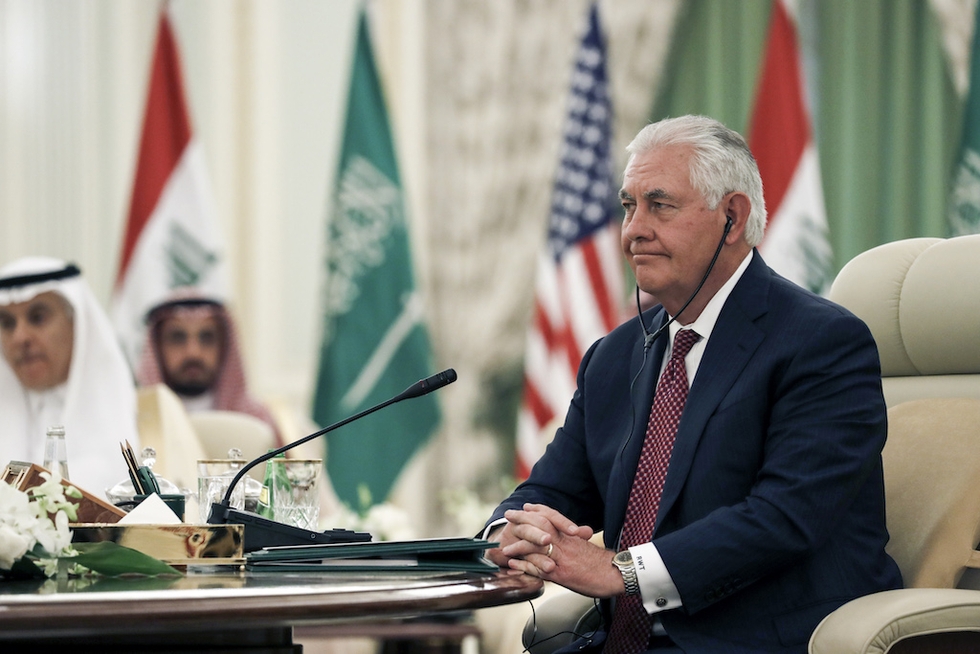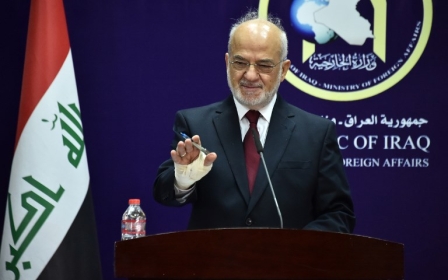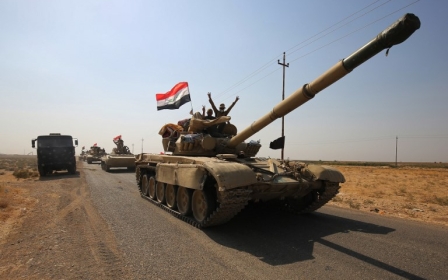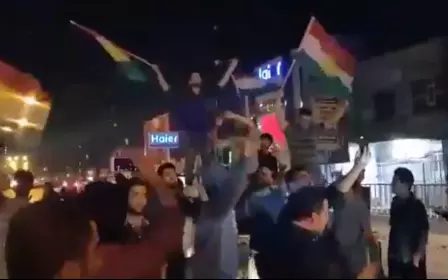US Secretary of State Tillerson demands Iranian militias leave Iraq

US Secretary of State Rex Tillerson on Sunday demanded that Iranian "militias" leave Iraq. He was speaking at a press conference in Riyadh, where the US diplomat is holding talks with top Gulf officials.
"Certainly Iranian militias that are in Iraq, now that the fighting against [the Islamic State group] is coming to a close, those militias need to go home," Tillerson said.
"All foreign fighters need to go home."
There are thought to be as many as 120,000 fighters belong to the Popular Mobilisation Units (PMUs), volunteer fighting groups comprised of previously existing organisations and groups formed after a call by religious leader Ali al-Sistani in 2014 to protect Iraq from IS.
Although the groups are largely paid by the government in Baghdad, the most-established groups are ultimately loyal to Iran and have engaged in sectarian reprisals against Sunnis.
Tillerson's Gulf visit comes as part of concerted efforts to curb Iran's influence in the region including boosting the clout of Sunni-ruled Saudi Arabia in Iraq, where Iran backs Shia militias fighting in the north.
As well as talks with senior Saudi officials in Riyadh including King Salman, Tillerson attended a landmark meeting between Saudi Arabia and Iraq aimed at upgrading strategic ties between the Arab neighbours.
The meeting appears aimed at boosting Sunni-ruled Saudi Arabia's clout in Shia-majority Iraq, part of a wider regional battle for influence that extends from Syria to Yemen.
Tillerson's visit comes after President Donald Trump refused to certify the Iran nuclear deal, leaving its fate to the US Congress, and laid out an aggressive new strategy against Tehran in a bellicose speech.
"This event highlights the strength and breadth as well as the great potential of the relations between your countries," Tillerson said at the first meeting of the joint Saudi-Iraqi coordination council in Riyadh.
Following years of tensions with Riyadh, Iraqi Prime Minister Haider al-Abadi hailed the meeting as an "important step toward enhancing relations," while King Salman warned of the dangers of "extremism, terrorism, as well as attempts to destabilise our countries".
The question of Iranian influence has also been at the heart of the diplomatic conflict between Saudi Arabia and Qatar, and Tillerson headed to Doha later on Sunday for talks on defusing the crisis between two key US allies.
Saudi Arabia, Bahrain, the United Arab Emirates and Egypt cut ties with Qatar and imposed an embargo in June, accusing it of supporting terrorism and cosying up to Iran.
Doha denies the charges and has rejected their terms for a settlement.
Tillerson made an unsuccessful attempt to resolve the dispute during a trip to the region in July.
Middle East Eye propose une couverture et une analyse indépendantes et incomparables du Moyen-Orient, de l’Afrique du Nord et d’autres régions du monde. Pour en savoir plus sur la reprise de ce contenu et les frais qui s’appliquent, veuillez remplir ce formulaire [en anglais]. Pour en savoir plus sur MEE, cliquez ici [en anglais].




